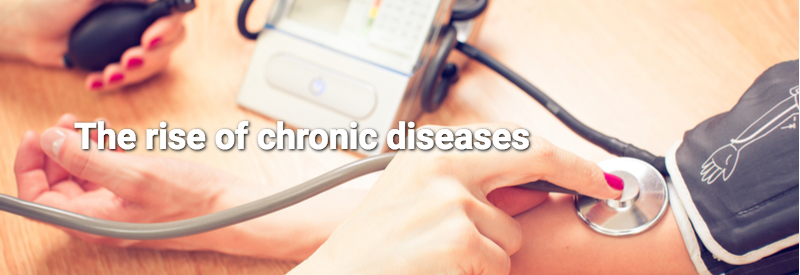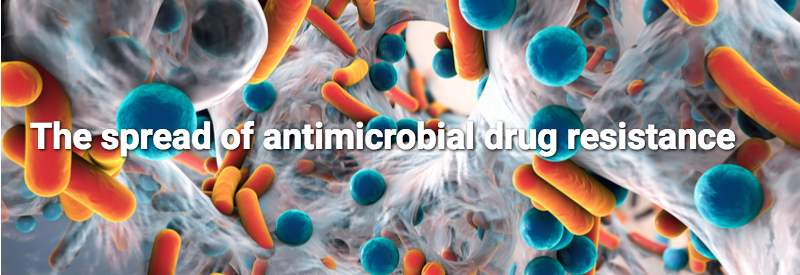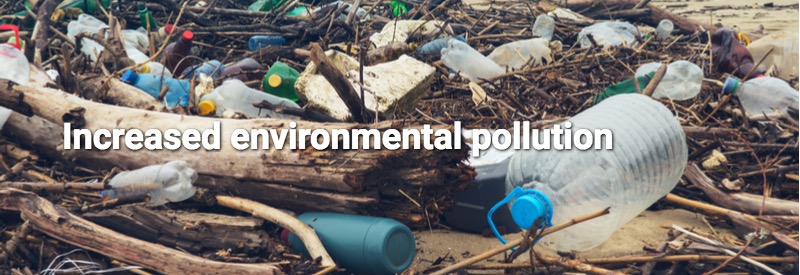Newsletter Signup - Under Article / In Page
"*" indicates required fields
While the EU’s Horizon funding program is more often associated with academic research, a sizeable proportion of its funds are invested in the European biotech industry. With a new stage of the program being close to launch, I investigated some challenges for the industry that it hopes to solve.
Beginning in 2021, Horizon Europe is set to be the European Union’s new flagship scientific initiative, pumping a whopping €100 billion into research and development over a seven-year timeframe.
As with its predecessor Horizon 2020, a sizeable percentage of these funds are likely to be invested within the European biotech industry, which is tackling some of the most prominent environmental and healthcare challenges that the new program will target.
While Horizon Europe is still in the conceptual phase, the European Commission has set five key challenges that they intend the new initiative to tackle.
I spoke to a range of European biotechs, some of whom have already received EU funding through Horizon 2020, to get their thoughts on each challenge, and the most pressing concerns that need addressing.

The EU aims to fight chronic illnesses including cardiovascular diseases, stroke, cancer, diabetes and mental illnesses. Between 1990 and 2012, the number of deaths from these ailments rose from 27 to 38 million, making them the leading cause of death in both developed and developing countries.
In the field of cancer medicine, many biotechs feel that one of the major challenges is to develop better solutions for monitoring progression of the disease, and how patients are responding to treatment.
“We’re very advanced in terms of disease stratification,” said Rémi Dangla, CEO and co-founder of Stilla Technologies, which is developing next-generation genetic tests for cancer. “When the patient is first diagnosed, you do a biopsy, sequence [DNA from] the biopsy, and you can get good information about the tumor. But after that, the only data you get is from imaging scans. Far more work needs to be done on developing ways to monitor if the treatment is actually working.”
Many biotechs believe that the way forward is solutions that use blood biomarkers to monitor cancer progression. But in order to make them commercially viable, Dangla believes there is a pressing need for Horizon Europe to fund projects aimed at improving many of the core underlying technologies such as sample extraction methods and assay design.
“Most of the biomarkers of interest in the patient’s blood are very diluted, which means that to find them, you need methods that allow you to process large amounts of blood, and these do not currently exist,” said Dangla. “Right now, identifying many of these biomarkers is a needle in a haystack problem, but we’re only able to process a portion of the haystack, so we have no chance of finding the needle.”
Technical challenges are also a major hurdle in improving clinical care in diabetes, especially when it comes to bringing novel cell therapies to the market. Biotechs operating in this space say that there is a need for Horizon Europe funding to develop novel ways of scaling up and automating the manufacturing process, in order to make these treatments financially viable.
“It’s one thing to generate these insulin-producing cells on a small scale in a lab, but to then scale this up to produce these cells at a scale which can be used to treat millions of patients in a cost-efficient manner, that’s very complicated,” said Jacqueline Ameri, CEO and founder of PanCryos. “With EU funding directed at tackling the manufacturing processes of advanced therapy medicinal products, the likelihood of these therapies one day becoming commercially available could increase.”
 The growing threat posed by increasing numbers of drug-resistant bacteria has been well publicized in recent years, with forecasts suggesting that the annual death toll from such infections will rise to 10 million worldwide by 2050.
The growing threat posed by increasing numbers of drug-resistant bacteria has been well publicized in recent years, with forecasts suggesting that the annual death toll from such infections will rise to 10 million worldwide by 2050.
French biotech Deinove has a novel antibiotic in phase II trials for gastrointestinal infections. CEO Emmanuel Petiot feels that the EU currently lags far behind the US in terms of funding opportunities for antibiotic discovery.
Petiot believes there is a pressing requirement for the EU to develop its own version of the CARB-X initiative in the US, which funds projects tackling antimicrobial resistance. He also believes it needs to create market incentives to make antibiotic development more commercially viable for biotechs and pharma companies alike, such as the recent policy set by the UK government.
“The EU needs to multiply the number of projects that aim to fund discovery for novel antibiotics,” said Petiot. “And then it needs to put in place market entry reward mechanisms to make sure that as soon as a new antibiotic is launched, it will be successful. This is needed because the sales will be low, as even if they’re very efficient, antibiotics will be kept back as last resort drugs. As things are right now, if you’re going to launch a new antibiotic, it’s hard to present a positive case.”

When it comes to environmental pollution, there’s one major topic on everyone’s minds – plastics. Statistics suggest that there’s already enough plastic in the ocean to circle the Earth 425 times, and over the next decade plastic production is expected to increase by 40%.
Some European biotechs are looking to tackle this problem by developing biomaterials that could replace plastic altogether and are looking for the funding to build plants and scale up their manufacturing process.
Others intend to replace the need for continuous plastic production by improving the recycling process with new technologies. French biotech Carbios have developed a biological solution that uses enzymes to selectively degrade particular forms of plastic, in a manner that allows them to be reassembled to form any other type of plastic.
“Plastics are a great material,” said Martin Stephan, deputy CEO of Carbios. “They bring a lot of value in a lot of sectors, so rather than banning them, we need to solve the end of life of plastics, and close the tap that brings plastic into the environment.”
Carbios has just created its first 100% recycled plastic bottle and is currently building a demonstration plant to scale up production to 100,000 tonnes or more. However, Stephan believes that while the demand for recycled plastic is there, Horizon funding is needed to create the infrastructure required to make this viable on a large scale.
“Money is needed to restructure the entire supply chain,” said Stephan. “You need improved collection of plastic waste, as well as an additional one million tonne capacity of plastic recycling plants all over the EU to meet the current demand.”

Personalized medicine has become an increasingly common buzzword in healthcare over the past decade. It is much more advanced than it was, with a number of treatments and diagnostics now on the market, or at least in late stage clinical trials. For example, French biotech Inotrem is developing a treatment for septic shock that works best in patients with a high level of a particular blood biomarker, which is currently in phase II trials. German biotechs Immatics and BioNTech are developing personalized immunotherapies for brain cancer that are also at phase II.
However, developing such specific therapies is expensive and many personalized diagnostics and treatments have still got a way to go before they reach the clinic
Dangla believes that due to the financial hurdles at stake, this will only be possible through substantial EU investment and incentives. “Developing a personalized diagnostic test or drug is not time efficient and is extremely costly,” he said. “For a start, treatments are only commercially viable if they’re going to be used in thousands and thousands of patients. The other problem is the cost of clinical trials. If you’re developing a personalized drug that you only expect to work on 1 in 100 patients, statistics are against you, so you’d need to test it on many thousands to see whether it’s effective, and that adds to the cost of development.”

In recent years, a surge in investment means that the Chinese biotech industry is booming, while the US market remains as strong as ever. This all means that it’s more difficult than ever for European biotechs to stay globally competitive and relevant.
Dangla believes that one of the focuses of Horizon Europe should be on unifying the way clinical trials are handled across the EU, to make it easier to conduct large multinational studies.
“The two similarities between China and the US is that they’re enormous countries where the regulatory laws are identical across huge areas,” said Dangla. “This gives companies access to thousands of patients in a single cohort, while in Europe, just aligning something like the sample processing protocol between two countries is extremely difficult. If this isn’t dealt with, it’s going to be hard for the EU to keep up.”
For Ameri, a key role of Horizon Europe should be to help bridge the initial funding gap that many small European biotechs have before securing their first round of series A funding, and enable them to develop their technology to the point where they become more attractive to venture capitalists.
“Developing cell-based medicinal products is a complex and expensive field that is still in its infancy, making fundraising more difficult in Europe compared to the US where VCs have in general, a more risk-willing attitude,” said Ameri. “In this regard, increased support from Horizon funding could be instrumental in de-risking new technologies like cell therapies, increasing the likelihood of them receiving further investment and one day reaching the market.”
 David Cox is a science and health writer based in the UK. He has a PhD in neuroscience from the University of Cambridge and has written for newspapers and broadcasters worldwide including the BBC, New York Times, and Guardian. You can follow him on Twitter @dcwriter89.
David Cox is a science and health writer based in the UK. He has a PhD in neuroscience from the University of Cambridge and has written for newspapers and broadcasters worldwide including the BBC, New York Times, and Guardian. You can follow him on Twitter @dcwriter89.
Images via Shutterstock






